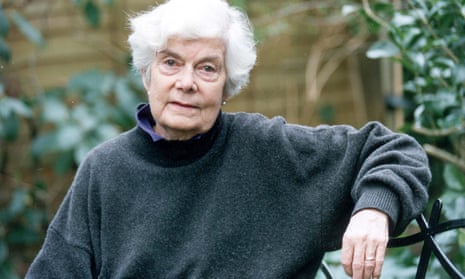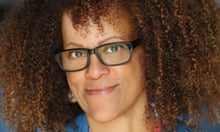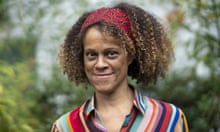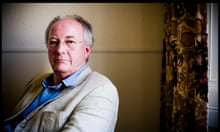Sitting in a coffee shop just around the corner from the publishers, Canongate, of which Christopher Bland had once been chair, members of Christopher’s family and of the Royal Society of Literature were brainstorming a title for the new prize to be announced in his name. “Late writers” risked conjuring up the dead, while “older writers” raised the question of what, in an industry that is often obsessed with youth, would be considered old: Google this query and you will find writers over 30 bemoaning the fact that they will soon be over the hill.
In the end we opted for a prize in Christopher’s name, to be awarded to a first novel or work of non-fiction published when the winner is 50 or older. Not before, however, we had worried about the quality of future entrants: what kind of writer, we wondered, apart from Christopher, who published two novels while in his 70s, would be eligible for such a prize?
Look no further than a list of greats that starts almost before the novel was a “thing” with Daniel Defoe, who, having written hundreds of pamphlets and journal articles, published his first long work of fiction, Robinson Crusoe, in 1719 – just before his 60th birthday. And then there are the many contemporary writers who, having come to the craft late, wrote books that earned them places in the canon of British literature. Richard Adams was 52 when Watership Down was published (he went on to write 20 more books, the last when he was 90). Mary Wesley was 57 when her first of three children’s books were published, and 70 when her first adult novel, Jumping the Queue, came out – and was quickly followed by the smash hit The Camomile Lawn when she was 71 (she wrote another eight novels, the last published a year before her death at 90). Frank McCourt shot to writing fame with Angela’s Ashes when he was 66, and Laura Ingalls Wilder’s series of “little houses in” books was inaugurated by The Little House in the Big Woods when she was 65.
And finally Raymond Chandler, who, perhaps more than any other, made me want to be a writer. Chandler started life as an accountant, restricted his writing to – in his opinion, “terrible” – reporting and “Grade B Georgian poetry”, lost his job in the Great Depression, paid $100 to take a writing correspondence course, began sending short stories to the pulp magazines when he was in his late 40s, and finally published The Big Sleep, his first novel, when he was 51. Chandler was a famously slow writer, and a consummate craftsman, who once said that: “Everything a writer learns about the art or craft of fiction, takes just a little away from his need or desire to write at all. In the end he knows all the tricks and has nothing to say.”
I was reminded of this when Christopher Bland joined the six-month novel-writing course I was teaching. Any biography of Christopher will list the organisations of which he was chair – almost numerous enough to furnish the small cafe where we were meeting to discuss the prize. They included chairing London Weekend Television, the boards of governors of the BBC, British Telecom and the Royal Shakespeare Company. Christopher bought none of this boast-worthy past into his writing present. And yet the scope and ambition of his writing – and also his fierce concentration – said something, not only about the man, but also about how his life experiences fed his writing. Like Chandler he had lived, and like Chandler and many other older writers, some of whom I hope soon to read, the writing became the one thing worth perfecting.








